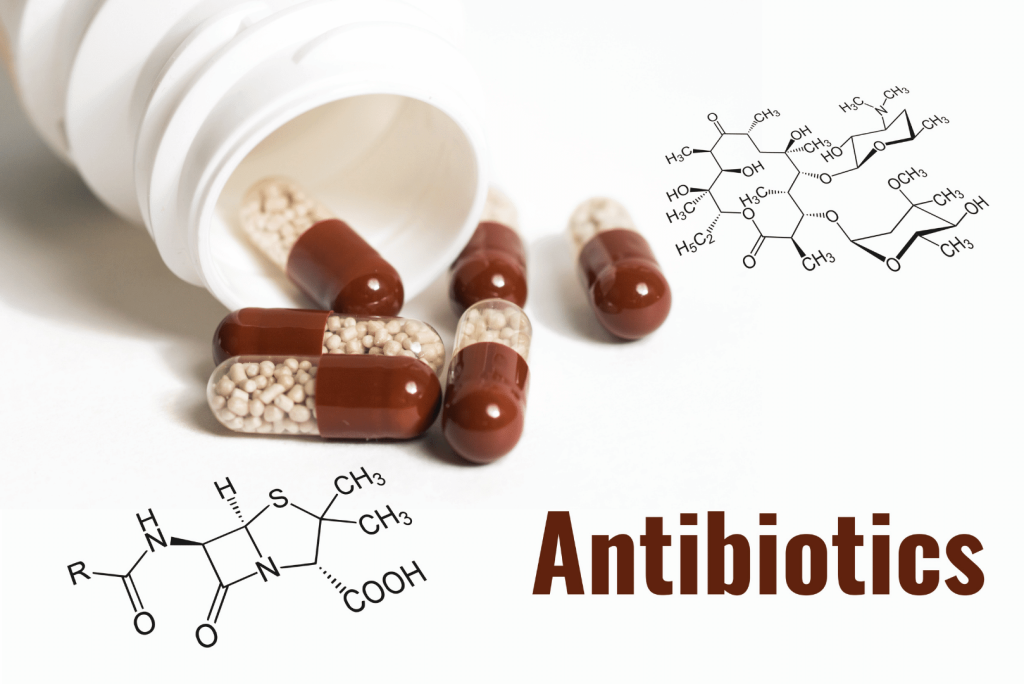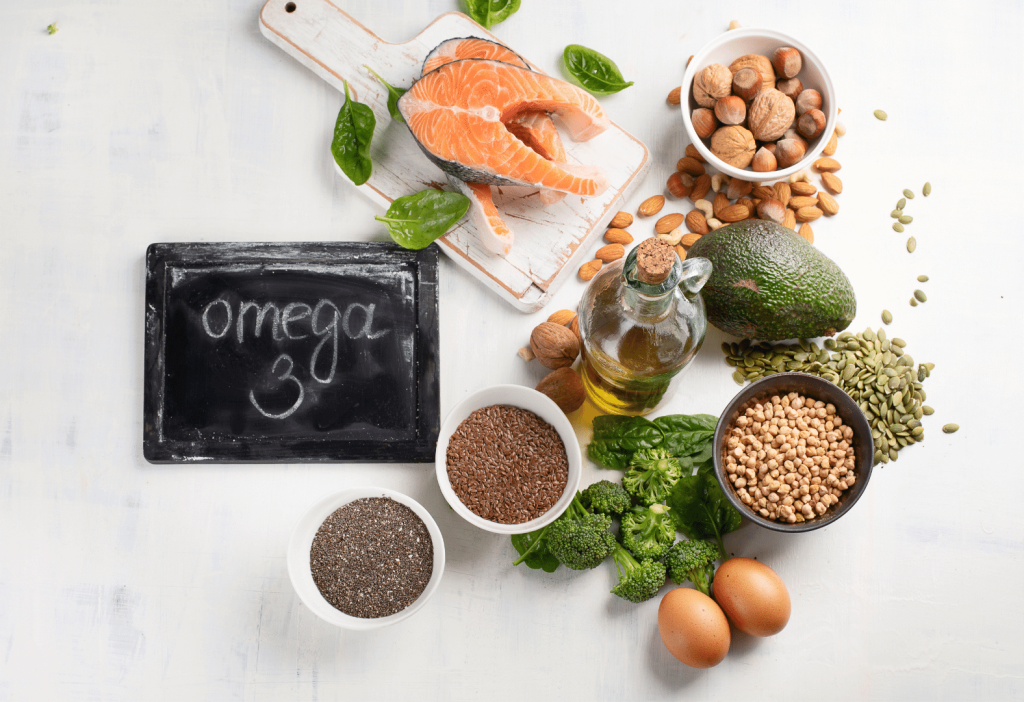
How To Increase Good Bacteria In The Gut Naturally


How To Increase Good Bacteria In The Gut Naturally
At the same time, gut bacteria fulfill critical functions for your body and health, like developing your immune system and protecting your body against invaders like bacteria and toxins.
Many factors influence whether you have a sufficient amount of good gut bacteria. They include:
- Age
- Diet
- Weight
- How you were born
- Antibiotic usage
Because it’s not exactly straightforward, taking probiotics typically isn’t enough. In this article, you will learn what extra steps you can take to increase your good bacteria naturally.
1. Eat A Lot Of Plants
What you eat matters. And if you want to eat to increase your good gut bacteria, a plant-based diet is the way to go. When you think of a plant-based diet, you might be thinking of eating lots of delicious greens or making green smoothies, but it’s so much more. A plant-based diet includes:
- Fruits
- Vegetables
- Nuts and seeds
- And whole grains like:
- Whole wheat
- Barley
- Buckwheat
- Brown rice
- Millet
- And oatmeal
This does not mean that you have to become vegan or even vegetarian. You can still eat fish, chicken, beef, eggs, and dairy products, but focus on getting most of your nutrients from plants.

In a study comparing the effects of diet on gut health, 11 subjects spent time eating both plant-based and animal-based diets. Subjects were allowed to eat an unlimited amount of only the provided foods for five days. Both diets rapidly altered the gut microbiota but in different ways.
When participants ate the animal-based diet, there was a rapid increase in the harmful bacteria Bilophila wadsworthia, which is believed to break down the intestinal wall. When eating a plant-based diet, the same harmful bacteria decreased significantly. Therefore, a plant-based diet can decrease the amount of harmful bacteria in your gut.
Fiber And Polyphenols
Eating a plant-based diet benefits your health by supporting the development of more diverse and stable gut bacteria. When eating a plant-based diet, you naturally consume more fiber and polyphenols, both of which support good bacteria.
When you consume more fiber, you’re actually feeding the good bacteria in your gut. Fiber is not digestible by your own digestive enzymes. But when it arrives in your colon, it serves as a feast for your good bacteria, allowing the good bacteria to multiply.
A meta-analysis of 16 studies examined the effects of dietary fiber on gut microbiota. While the methodology of the studies was different, they consistently showed that diets higher in fiber could change the gut microbiota and increase good bacteria.
Eating a plant-based diet also increases the amount of polyphenols you eat. You know you’re eating polyphenols when you eat colorful foods. They are micronutrients power-packed with antioxidants. And because they are poorly absorbed, they stay in your intestines for longer. This is when they get to work on your gut bacteria.
A review of clinical studies explored the effects of polyphenols on the gut microbiota. They found that polyphenols can likely feed good gut bacteria like Bifidobacterium and Lactobacillus, and kill or inhibit harmful bacteria.
2. Address Unhealthy Overgrowth Of Yeasts And Parasites
Your gastrointestinal tract is home to trillions of microorganisms including bacteria, fungi, parasites, and viruses. When you have a large and diverse amount of good bacteria, your body can remain in control, and the many microorganisms that live in your gut won’t bother you.
The yeast and parasites that exist naturally in your body, however, thrive on the harmful bacteria in your gut. Parasites like to settle in and begin to steal your nutrients which, if left unaddressed, can cause an overgrowth of yeast and harmful bacteria. When this occurs, you could end up with gut dysbiosis or an imbalance in your gut microbiota. To avoid this, it’s essential to test for and address them.
Some signs that your gut is out of balance include:
- Bad breath
- Upset stomach
- Nausea
- Irregularities
- Bloating
- Irritability
- Mental health issues
While it doesn’t replace a good functional medicine workup to find the root cause of any gut discomfort, Herbal Parasite Guardian contains many synergistic antimicrobial herbs. This blend can inhibit bad bacteria, yeasts, and parasites, allowing more good bacteria to grow. Pairing Herbal Parasite Guardian with a low-carb, low-inflammatory diet can make the parasites even more vulnerable to antiparasitic herbs.
3. Use A Weed And Reseed Program
To improve the balance of your gut and allow the good bacteria to thrive, you need to not only feed the good bacteria but also get rid of the bad. Like a garden, you weed out the bad to make room to reseed with healthy bacteria.
Biome Breakthrough is a fantastic blend of IgYmax and synbiotics (prebiotics and probiotics) that do a lot of the weeding and reseeding work for you. IgYmax escorts out harmful bacteria, making room for the good ones, while synbiotics make it more likely for good bacteria to colonize your gut.
In your gut, harmful bacteria hang out in gel-like clusters called biofilms. These biofilms have a protective outer layer that makes it harder for your body to kick them out. This is where IgYmax comes in. IgYmax can inhibit biofilms and remove harmful bacteria without killing your good bacteria.
Clinical studies show successful IgYmax usage on biofilms in the mouth and stomach.
The addition of synbiotics to Biome Breakthrough helps you reseed your gut. Synbiotics are a combination of both prebiotics and probiotics. Prebiotics are fibers that set the stage for probiotics. Your gut cannot digest them, so they are left over to feed probiotics. In fact, the combination of prebiotics and probiotics makes probiotics even more effective.
4. Avoid Exposures To Antibiotics Or Things That Can Kill Good Gut Bacteria

If there are times when antibiotics can save your life, then you should use them. You want to save antibiotic usage only for those moments. Antibiotic exposure is bad for gut bacteria. They reduce the diversity of gut bacteria species and disrupt your microbial equilibrium. Each antibiotic exposure also increases the risk of antibiotic resistant bacteria, potentially making future antibiotic use less effective.
The gut flora disruption from antibiotics can contribute to the risk of all kinds of health issues, from heart disease to mental health conditions and cancers. Frequent or long-term use of antibiotics increases the risk of all–cause and cardiovascular mortality.
In a study of 14 healthy individuals, 12 participants received antibiotics, and two served as the control for six days. Scientists observed a detrimental effect on gut bacteria– but it didn’t stop there. Participants who received antibiotics also experienced an increase in fungal growth.
We already discussed the problem of increased fungal growth like yeast; it can lead to overgrowth and eventually gut dysbiosis. These alterations to your gut can last up to 90 days after taking antibiotics.
Watch out for hidden sources of antibiotics and antimicrobials. You may be ingesting antibiotics without being fully aware. Farmers often give antibiotics to animals raised for human consumption to prevent sickness and increase growth. The bad news is that they can be passed on to you when you eat their meat.
Policies regarding antibiotic use in food are inconsistent in the U.S. and internationally. Antibiotics are used for therapeutic purposes and sub-therapeutically to increase animal weight gain. When there are inconsistencies, it’s best to stick to what you know is safe. Choose organic and antibiotic-free meats.
Antimicrobials like triclosan and chlorine in many consumer products may also affect your gut bacteria.
Triclosan is in more than 2,000 consumer products, from toothpaste to kitchenware. In a mouse study, mice consumed triclosan via their diet for three weeks. After the three weeks, all of the mice experienced reduced gut flora diversity.
Therefore, triclosan exposure may have adverse effects on your gut. In September, 2016, the FDA banned triclosan and triclocarban from all household soap products in the United States. However, there are still many other antimicrobials such as benzalkonium chloride and chloroxylenol, which can disrupt your gut and skin flora.
When you drink unfiltered public drinking water, you are also likely consuming chlorine. Water is treated with chlorine to prevent infectious disease transmission, but it can also affect your gut. microbiota
In an animal study that examined the effects of chlorine on the gut bacteria, pregnant mice consumed chlorinated water, and their young continued to drink the same water after weaning. The results were consistent throughout all mice. Chlorinated water changed the gut microbiota and led to a decrease in bacterial diversity.
Antimicrobials like triclosan and chlorine are dangerous when consumed and exposed to your skin through cleaning products. Your skin has a microbiota that protects you from harmful bacteria. When you use these cleaners, you are killing the good bacteria, and there goes your protection.
In a study of 20 adults, half of the participants used antibacterial soap for one week. After just one week of use, the antibacterial soap changed the microbial community on the skin of the participants. These changes lasted for at least two weeks after stopping using the soap.
There are safe cleaning alternatives. It’s as simple as soap and water, which are all you need to kill the most common germs. In a study of 238 households, participants used either antibacterial or non-antibacterial soap for general cleaning, laundry, and handwashing for four months. There was no significant difference between the groups regarding the incidence of sickness. Therefore, regular soap and water are just as effective as antibacterial soaps.
Avoid antibiotics and antimicrobials unless absolutely necessary to maintain healthy levels of good gut bacteria. Choose organic and good old soap and water. Lastly, you also want to make sure to use water filters that remove chlorine in your drinking and bathing water.
5. More Omega-3 And Less Saturated Fats
To increase good gut bacteria, choose fats wisely. Saturated fats seem to kill off good bacteria and favor bad ones. Omega-3s, however, increase good gut bacteria.
You have two main kingdoms of bacteria in your gut: Firmicutes and Bacteroidetes. Some Firmicutes may contribute to inflammation and weight gain. Bacteroidetes, on the other hand, fight inflammation and may be associated with leanness. The type of fat you consume can influence which bacteria thrive.
A meta-analysis of 40 studies examined the effects of dietary fat on gut microbiota. Both animal and human studies show an increase in firmicutes and a decrease in bacteroidetes (good bacteria) when consuming a diet high in saturated fat. Diets high in saturated fat may decrease the richness (number of species) of the bacteria in your gut and the diversity (population of each species) of bacteria in your gut.

If you’re unsure whether a fat is saturated, think about whether or not it’s solid at room temperature. If so, it’s probably saturated fat. Some examples include:
- Butter, margarine, or shortening
- Animal fats like in lard or in the cuts of meat themselves
- High-fat dairy like whole milk, cheese, ice cream, and sour cream
Stick to Omega-3s to increase your good gut bacteria. Omega-3s are essential fats because your body doesn’t make them. The only way you can get them is through your diet and supplementation.
A review of clinical studies found that Omega-3s actually increase the amount of good bacteria in your gut. They do this by acting as prebiotics for good bacteria to feed on. They can even reverse dysbiosis by restoring the balance between Firmicutes and Bacteroidetes in the gut.
Unlike saturated fats, Omega-3s are liquid at room temperature. Some healthy sources of Omega-3s include:
- Fatty fish like mackerel, sardines, salmon, and herring
- Cod liver oil
- Flaxseed
- Chia seeds
- Walnuts
6. Eat Fermented Foods

Finally, you should eat fermented foods. They are a delicious way to add healthy bacteria to your diet and have been part of the human diet since ancient times. Some common examples include:
- Yogurt
- Pickles
- Sauerkraut
- Kombucha
- Kefir, water or yogurt
- Miso
- Kimchi
Fermentation occurs when microorganisms like fungi and bacteria break down carbohydrates, like starches or sugars, into alcohols, acids, or gasses. Beneficial side effects of this process include increased digestibility and the development of healthy microorganisms that support your gut bacteria.
In a recent study on the effects of a fermented food-rich diet, 18 participants ate either a diet rich in fermented foods or a diet rich in fiber. Fermented foods included various dairy products, vegetables, and non-alcoholic beverages. After 17 weeks of following the diet, participants who ate a diet rich in fermented foods had more diverse gut microbiota than those who ate a high-fiber diet.
If you aren’t already eating fermented foods, try adding them soon. You may want to start slowly to avoid any digestive issues. When buying commercially prepared products, check whether or not what you are buying is pasteurized. If it is pasteurized, you’re not getting the benefits of live microorganisms. However, all fermented foods contain some postbiotics or the byproducts of good bacteria fermentation that are good for your gut and gut flora.
The Takeaway
To maintain good gut health, you need a sufficient amount of good gut bacteria. Taking probiotics alone just isn’t enough.
By eating more plants and fermented foods, avoiding antibiotics and antimicrobials as much as possible, and avoiding saturated fats while increasing Omega-3s, you’re well on your way to better gut health. And don’t forget to address any issues like yeast and parasites that can tip the balance in the wrong direction.
References
- Francino MP. Early development of the gut microbiota and immune health. Pathogens. 2014;3(3):769-790. doi:10.3390/pathogens3030769
- Hasan N, Yang H. Factors affecting the composition of the gut microbiota, and its modulation. PeerJ. 2019;7(e7502):e7502. doi:10.7717/peerj.7502
- David LA, Maurice CF, Carmody RN, et al. Diet rapidly and reproducibly alters the human gut microbiome. Nature. 2014;505(7484):559-563. doi:10.1038/nature12820
- Rackerby B, Kim HJ, Dallas DC, Park SH. Understanding the effects of dietary components on the gut microbiome and human health. Food Sci Biotechnol. 2020;29(11):1463-1474. doi:10.1007/s10068-020-00811-w
- Myhrstad MCW, Tunsjø H, Charnock C, Telle-Hansen VH. Dietary fiber, gut Microbiota, and metabolic regulation-current status in human randomized trials. Nutrients. 2020;12(3):859. doi:10.3390/nu12030859
- Kumar Singh A, Cabral C, Kumar R, et al. Beneficial effects of dietary polyphenols on gut Microbiota and strategies to improve delivery efficiency. Nutrients. 2019;11(9):2216. doi:10.3390/nu11092216
- Naveed A, Abdullah S. Impact of parasitic infection on human gut ecology and immune regulations. Transl Med Commun. 2021;6(1). doi:10.1186/s41231-021-00091-4
- Belizário JE, Faintuch J. Microbiome and gut dysbiosis. Exp Suppl. 2018;109:459-476. doi:10.1007/978-3-319-74932-7_13
- Pérez JC. The interplay between gut bacteria and the yeast Candida albicans. Gut Microbes. 2021;13(1):1979877. doi:10.1080/19490976.2021.1979877
- Hall-Stoodley L, Costerton JW, Stoodley P. Bacterial biofilms: from the natural environment to infectious diseases. Nat Rev Microbiol. 2004;2(2):95-108. doi:10.1038/nrmicro821
- Rahman S, Van Nguyen S, Icatlo FC Jr, Umeda K, Kodama Y. Oral passive IgY-based immunotherapeutics: a novel solution for prevention and treatment of alimentary tract diseases: A novel solution for prevention and treatment of alimentary tract diseases. Hum Vaccin Immunother. 2013;9(5):1039-1048. doi:10.4161/hv.23383
- Markowiak P, Śliżewska K. Effects of probiotics, prebiotics, and synbiotics on human health. Nutrients. 2017;9(9):1021. doi:10.3390/nu9091021
- Bomba A, Nemcová R, Mudroňová D, Guba P. The possibilities of potentiating the efficacy of probiotics. Trends Food Sci Technol. 2002;13(4):121-126. doi:10.1016/s0924-2244(02)00129-2
- CDC. What Exactly is Antibiotic Resistance? Centers for Disease Control and Prevention. Published October 5, 2022. Accessed November 1, 2022. https://www.cdc.gov/drugresistance/about.html
- Heianza Y, Ma W, Li X, et al. Duration and life-stage of antibiotic use and risks of all-cause and cause-specific mortality: Prospective cohort study: Prospective cohort study. Circ Res. 2020;126(3):364-373. doi:10.1161/CIRCRESAHA.119.315279
- Seelbinder B, Chen J, Brunke S, et al. Antibiotics create a shift from mutualism to competition in human gut communities with a longer-lasting impact on fungi than bacteria. Microbiome. 2020;8(1):133. doi:10.1186/s40168-020-00899-6
- Landers TF, Cohen B, Wittum TE, Larson EL. A review of antibiotic use in food animals: perspective, policy, and potential. Public Health Rep. 2012;127(1):4-22. doi:10.1177/003335491212700103
- Sanidad KZ, Xiao H, Zhang G. Triclosan, a common antimicrobial ingredient, on gut microbiota and gut health. Gut Microbes. 2019;10(3):434-437. doi:10.1080/19490976.2018.1546521
- Nathan A. Effect of chlorine water consumption on phenotypic and microbiome development. Published online 2019. doi:10.7282/T3-A9S4-KP69
- Grice EA, Segre JA. The skin microbiome. Nat Rev Microbiol. 2011;9(4):244-253. doi:10.1038/nrmicro2537
- Yu JJ, Manus MB, Mueller O, Windsor SC, Horvath JE, Nunn CL. Antibacterial soap use impacts skin microbial communities in rural Madagascar. PLoS One. 2018;13(8):e0199899. doi:10.1371/journal.pone.0199899
- Larson EL, Lin SX, Gomez-Pichardo C, Della-Latta P. Effect of antibacterial home cleaning and handwashing products on infectious disease symptoms: a randomized, double-blind trial. Ann Intern Med. 2004;140(5):321-329. doi:10.7326/0003-4819-140-5-200403020-00007
- Wolters M, Ahrens J, Romaní-Pérez M, et al. Dietary fat, the gut microbiota, and metabolic health – A systematic review conducted within the MyNewGut project. Clin Nutr. 2019;38(6):2504-2520. doi:10.1016/j.clnu.2018.12.024
- Costantini L, Molinari R, Farinon B, Merendino N. Impact of omega-3 fatty acids on the gut Microbiota. Int J Mol Sci. 2017;18(12):2645. doi:10.3390/ijms18122645
- Leeuwendaal NK, Stanton C, O’Toole PW, Beresford TP. Fermented foods, health and the gut microbiome. Nutrients. 2022;14(7):1527. doi:10.3390/nu14071527
- Marco ML, Heeney D, Binda S, et al. Health benefits of fermented foods: microbiota and beyond. Curr Opin Biotechnol. 2017;44:94-102. doi:10.1016/j.copbio.2016.11.010
- Wastyk HC, Fragiadakis GK, Perelman D, et al. Gut-microbiota-targeted diets modulate human immune status. Cell. 2021;184(16):4137-4153.e14. doi:10.1016/j.cell.2021.06.019
